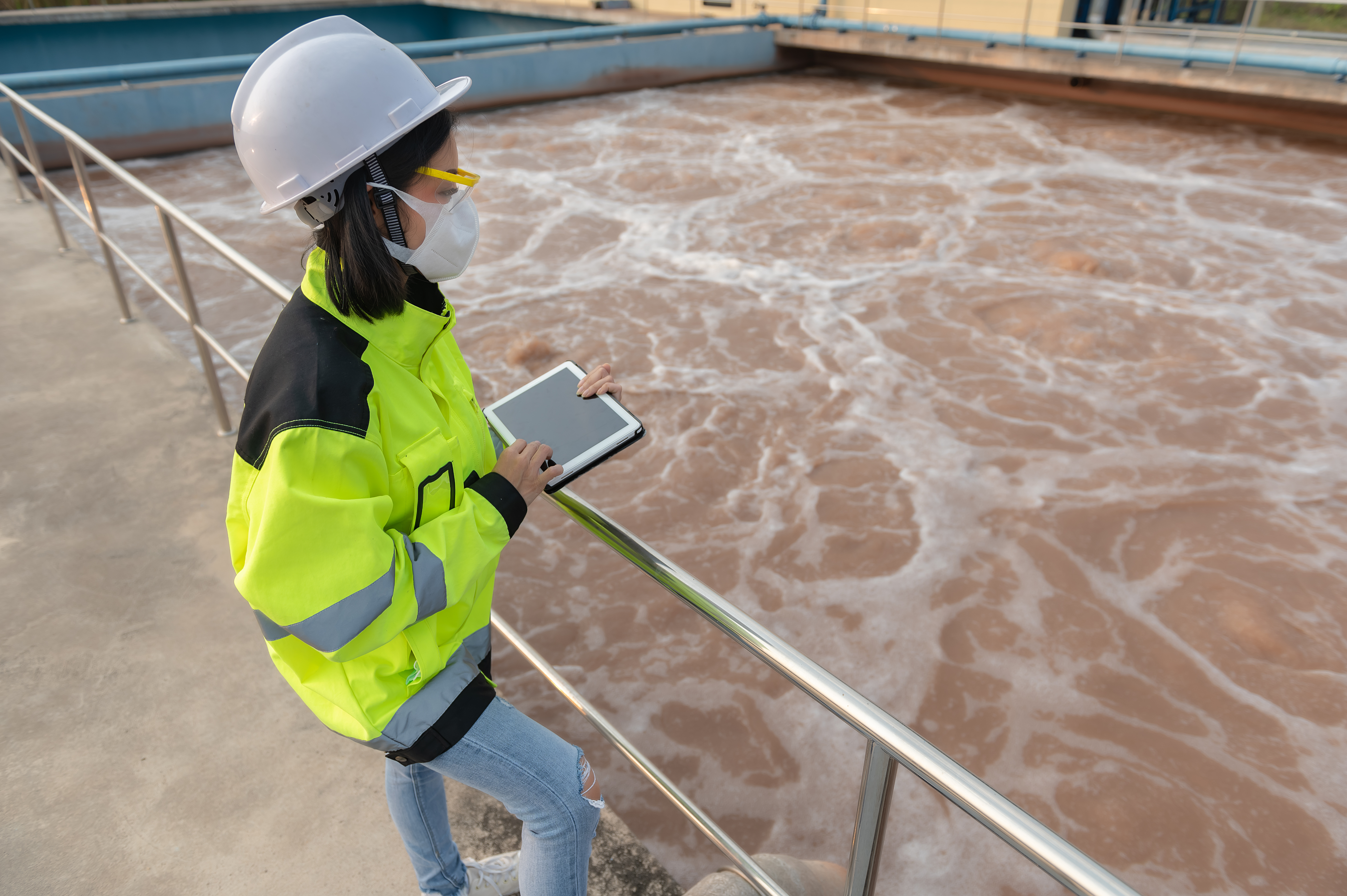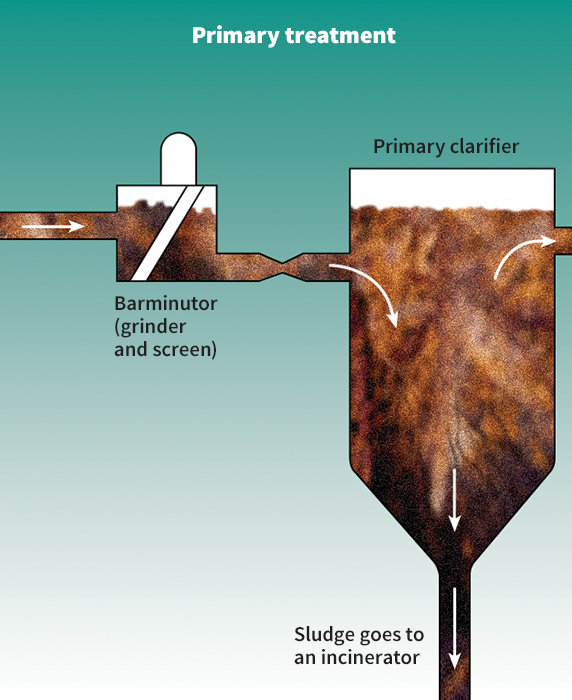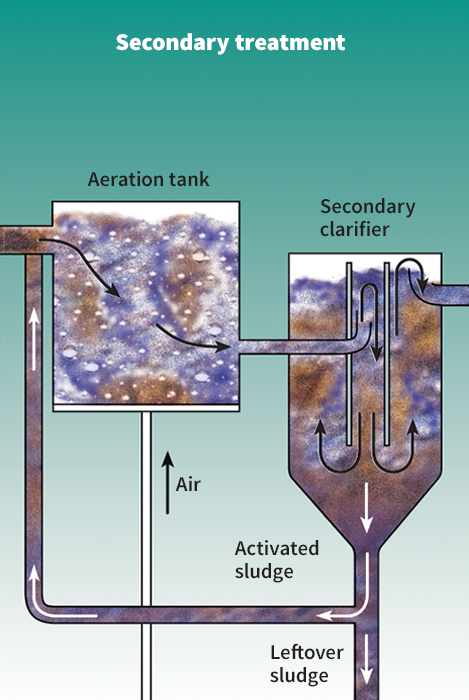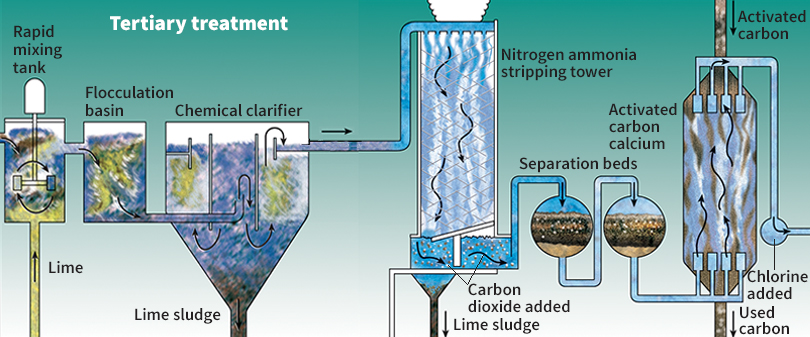Sanitation is a field of public health. It involves various efforts to control the environment to prevent and control disease. Sanitation activities include food processing and distribution, sewage treatment, solid waste disposal, water treatment, and numerous other measures, such as control of air pollution and rodents. Sanitation also includes personal cleanliness, which helps protect against disease. 
Many professions and various government agencies work together to protect the health of communities. Environmental engineers design and administer water treatment plants, sewage treatment plants, and solid-waste disposal facilities. Government agencies establish and enforce laws that help promote a healthful environment.
Food processing and distribution.
Food and beverages can easily be contaminated by bacteria, viruses, worms, and other organisms and by chemical poisons. Government agencies are usually involved in food and beverage control. For example, the United States Food Safety and Inspection Service inspects meat before and after animals are slaughtered. It also checks the processing, labeling, packaging, and distribution of meat, poultry, and egg products. The U.S. Food and Drug Administration performs similar regulatory activities for other kinds of food. See Meat packing (Inspection and stunning); Pure food and drug laws (Foods).
Sewage treatment.
Sewage is water containing waste matter produced by people. It contains about a tenth of 1 percent solid waste. It comes from sinks and toilets in homes, farms, restaurants, factories, and office buildings. Much industrial sewage contains harmful chemicals and other waste materials.


Sewage must be treated before it flows from sewerage systems into lakes, rivers, and other bodies of water. Untreated sewage contaminates the water and, in time, can kill fish and aquatic plants. The sewage makes the water unsafe to drink and can also prevent use of the water for swimming, fishing, and other recreation.

Most cities and towns have at least one sewage treatment plant. In most rural areas, homeowners must provide their own sewage treatment. Most do so with large underground containers called septic tanks. For more information on sewage treatment, see Sewage.
Solid waste disposal
has become a major sanitation problem. Solid waste, which is also called refuse, consists of garbage and trash from cities and towns, plus by-products of farming, mining, and manufacturing. Such by-products include animal carcasses and manure from farms, sawdust and scrap metal from factories, and pieces of coal and various metals from mines.
Almost all methods of solid waste disposal can create environmental problems. For example, open dumps look unpleasant and may be foul smelling. They also provide homes for rats and other animals that carry disease. Burning solid waste causes smoke, which pollutes the air. But when land disposal sites and incinerators are properly operated, they cause little harm to the environment. See Waste disposal.
Water treatment.
Most water must be treated before it is used for drinking, cooking, bathing, or laundering. Almost all untreated water contains bacteria, viruses, and other tiny organisms. It also may have an unpleasant odor and taste and contain minerals that make the water less useful as a cleaning agent.
Cities and towns obtain water from one of two sources: (1) the ground or (2) rivers and lakes. Many small communities get their water from the ground. Such water requires little treatment. Most of the larger cities get their water from rivers and lakes for various reasons. In many cities, for example, there is not enough water in the ground to supply the large population. Water from rivers and lakes is piped from its source to a treatment plant, where chemical and physical processes purify it. Pipes under the streets distribute the water to houses and other buildings.
Other sanitation activities.
Most communities have regulations that require dwellings, factories, hospitals, and recreation areas to meet certain sanitary standards. Sanitation also includes insect and rodent control, noise control, and licensing of operators of public facilities.
See also Environmental pollution; Public health; Water (City water systems).
